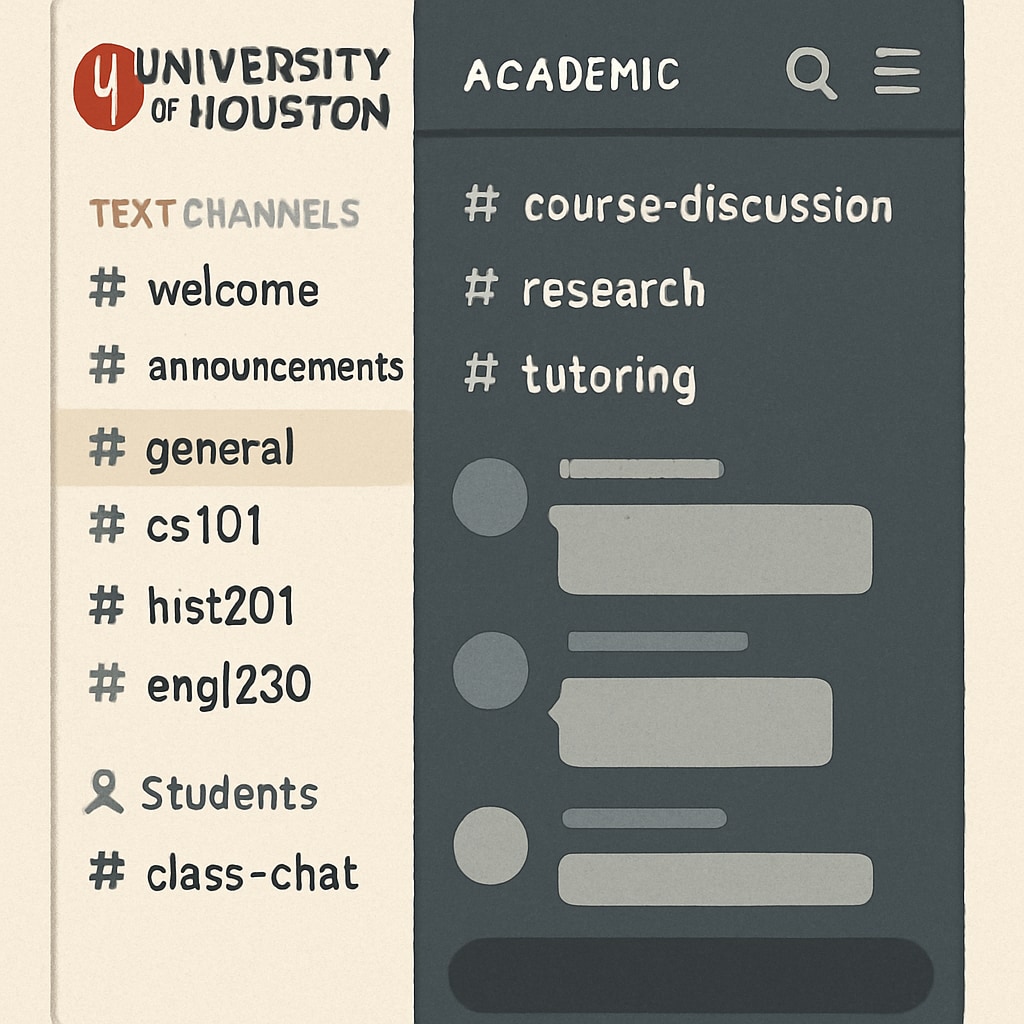Transitioning from K-12 education to higher education can be a daunting experience. For students at the University of Houston, finding reliable academic support networks such as study groups and online platforms like Discord is essential for success. These resources not only enhance learning but also foster collaboration and community. This article explores the importance of learning communities and provides actionable advice to help students discover and build their academic support networks.
Why Academic Support Networks Matter
Academic support networks play a vital role in helping students navigate the challenges of university life. Study groups, for example, provide opportunities to clarify complex concepts, exchange ideas, and prepare for exams collaboratively. Additionally, platforms like Discord—an online communication tool—offer virtual spaces for students to connect, discuss coursework, and share useful resources.
According to Britannica, collaborative learning environments boost student engagement and improve retention rates. This is especially important for first-year university students who may find the transition overwhelming. By joining these networks, students can experience a sense of belonging while enhancing their academic performance.

Finding Study Groups at the University of Houston
Joining a study group may seem straightforward, but knowing where to look can make all the difference. At the University of Houston, students can connect through:
- Campus Organizations: Many student organizations host study sessions tailored to specific majors or courses.
- Classmates: Reach out to peers in your classes to form informal study groups.
- UH Libraries: The university’s library system often has resources and spaces conducive to group studies.
Networking with classmates or attending events such as academic workshops can also help you find like-minded individuals eager to collaborate.
Leveraging Online Platforms Like Discord
While traditional study groups often meet in person, virtual platforms like Discord offer flexibility and convenience. Discord allows users to create dedicated servers for specific subjects or courses, making communication and resource sharing seamless. For students at the University of Houston, several Discord servers focus on various topics, including STEM fields, humanities, and general study support.
To find or join a Discord server related to your coursework:
- Search Online: Check social media platforms or forums where students often share server links.
- Talk to Professors: Some instructors may recommend Discord servers as supplementary learning resources.
- Student Groups: Many campus organizations use Discord for communication and collaboration.
Discord’s ability to host text, voice, and video channels makes it an ideal tool for both academic discussions and casual interactions within a learning community.

Tips for Building Your Own Support Network
If existing resources don’t meet your needs, consider creating your own academic support network. Here are some strategies to get started:
- Identify Your Needs: Determine which subjects or skills you want to focus on within the group.
- Advertise: Use flyers, social media, or student forums to recruit members for your group.
- Set Goals: Establish clear objectives for your study group, such as mastering specific topics or preparing for exams.
- Use Technology: Utilize tools like Discord or Zoom for virtual meetings and sharing resources.
By taking the initiative, you can create a tailored learning community that meets your academic goals while fostering collaboration and growth.
Conclusion
Whether you’re joining existing study groups or creating your own, finding reliable academic support networks at the University of Houston can significantly enhance your learning experience. Platforms like Discord provide innovative ways to connect with peers and access resources, while traditional campus organizations offer structured opportunities for collaboration. By leveraging these tools and strategies, students can build communities that empower academic success and personal development.


